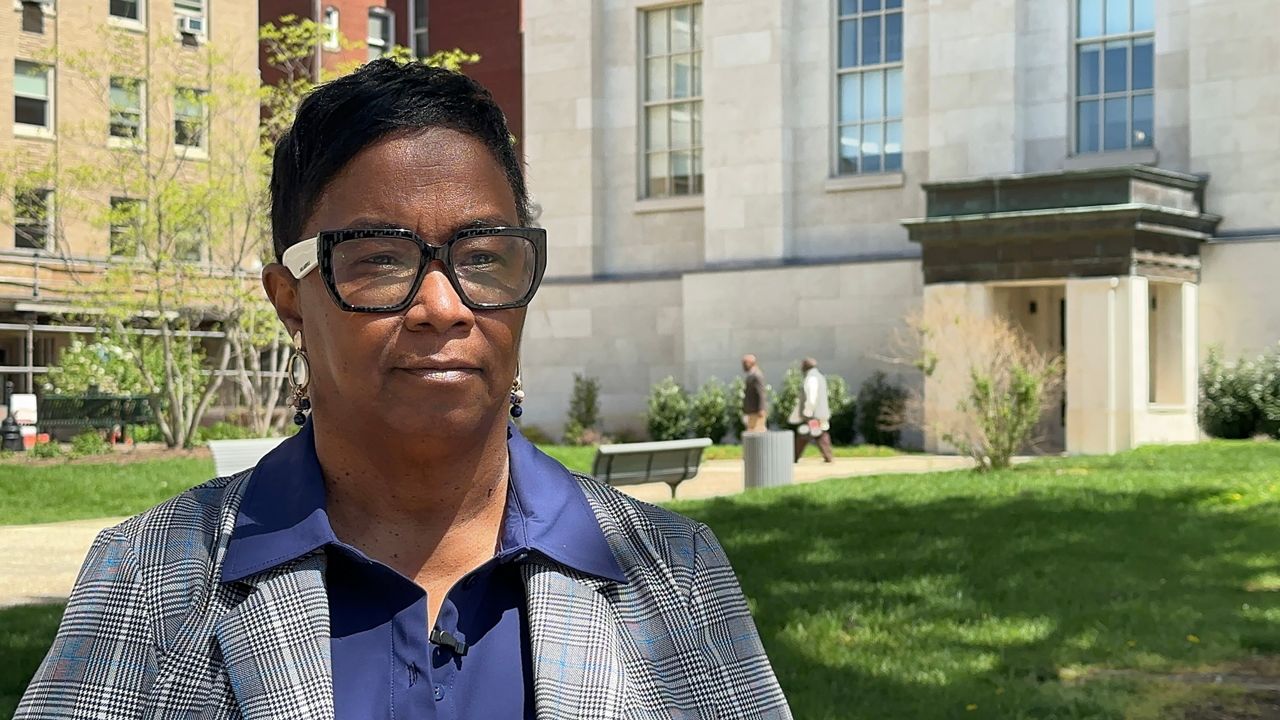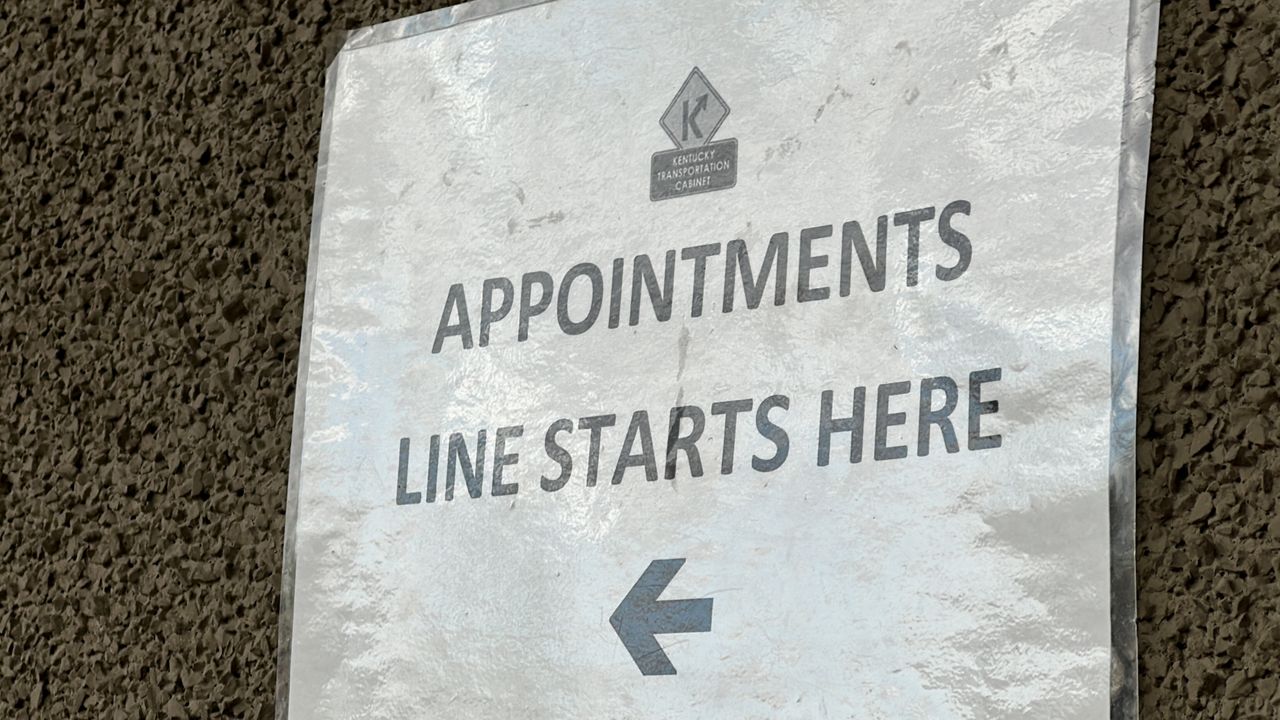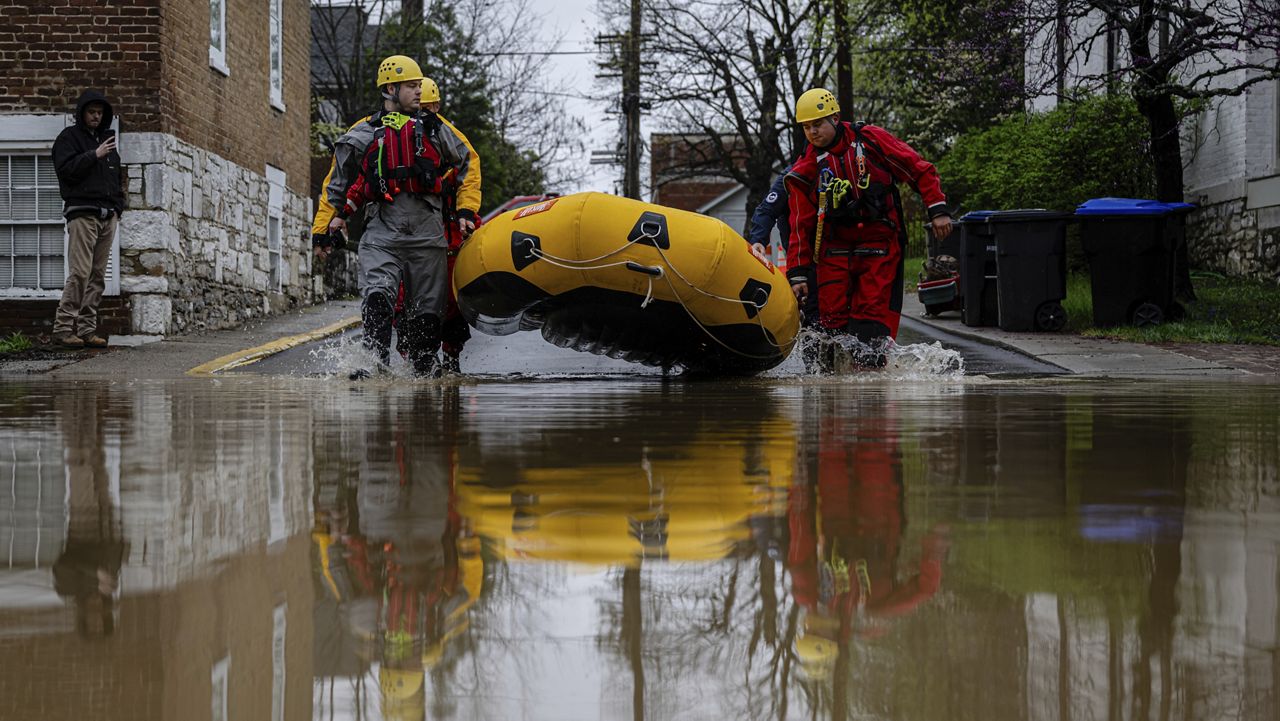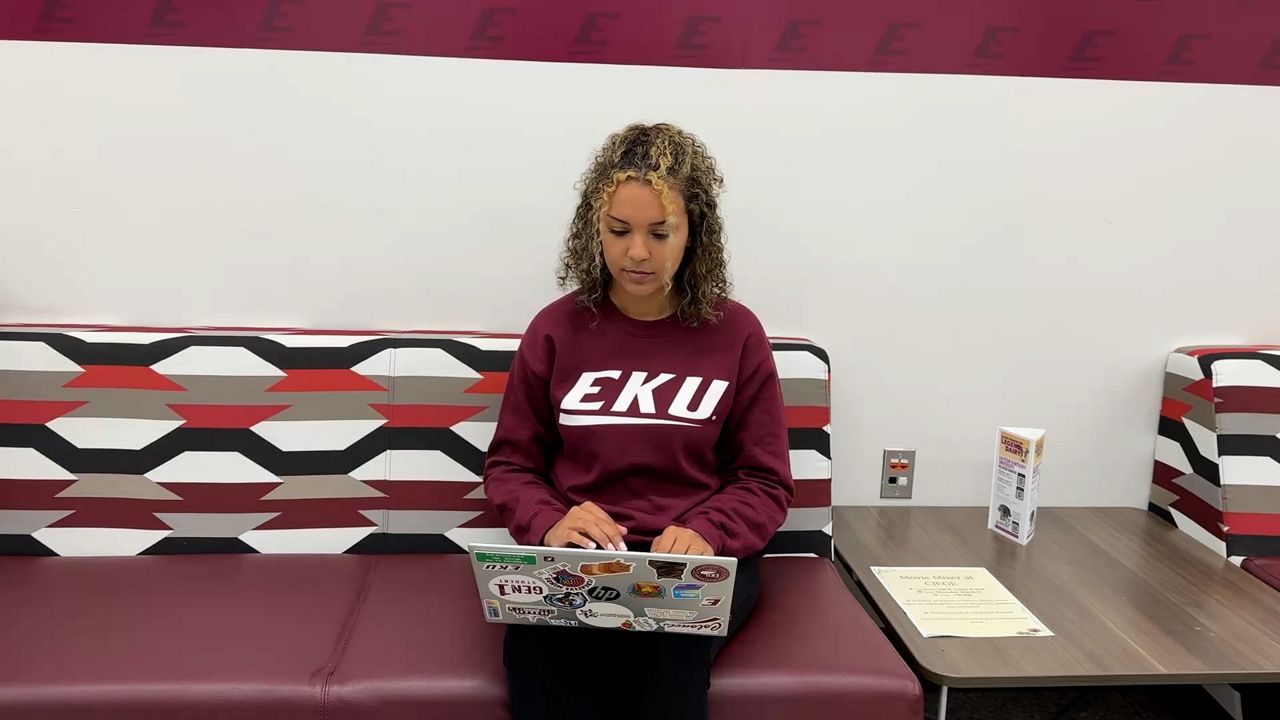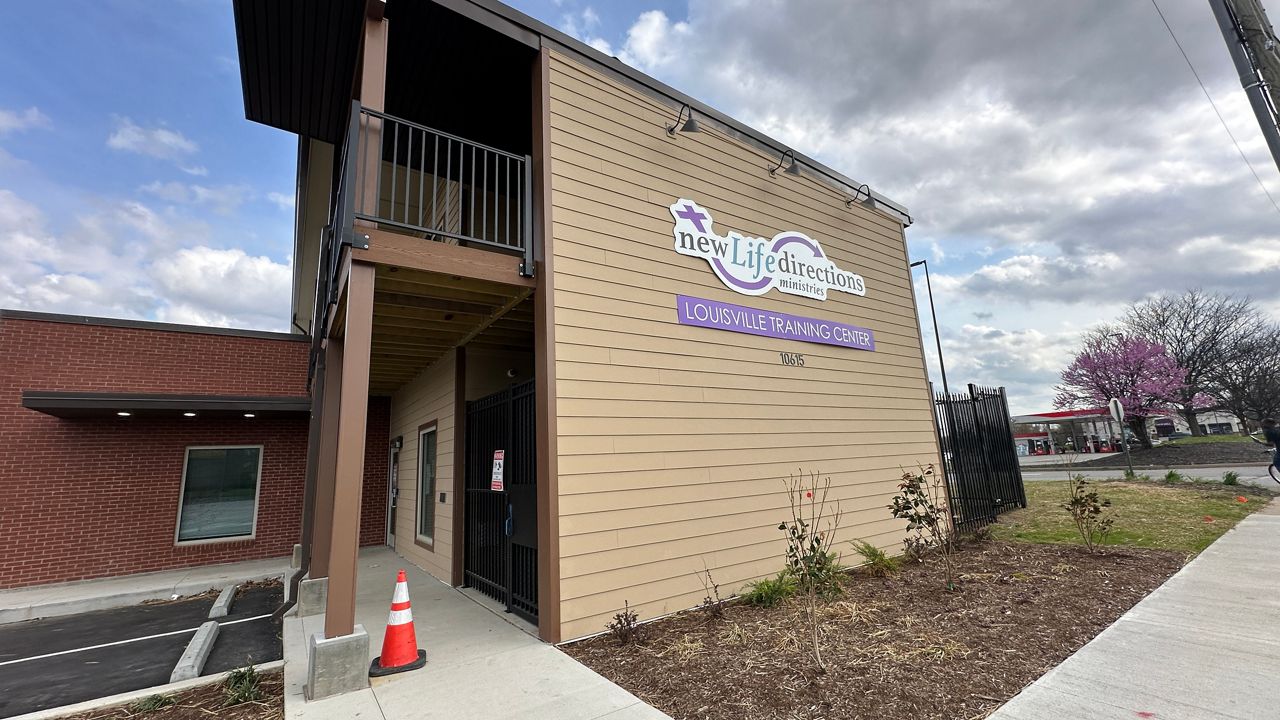LEXINGTON, Ky. — Responding to President Donald Trump’s crackdown on immigration, advocates have been mobilizing to support immigrant communities, including through "Know Your Rights" trainings.
The Neighbors Immigration Clinic is a nonprofit law firm that provides low-cost legal services to immigrants while also educating the broader community and advocating for immigrants’ rights.
About 20 people gathered for a recent training geared toward community leaders, teachers and those who work with immigrants. The goal was to give participants the tools to support their immigrant neighbors and even have their own "Know Your Rights" trainings.
“What we want is people to be equipped with how to keep themselves safe,” said Mizari Suárez, the nonprofit's executive director. “That’s all, and that is our goal. We want our communities to be safe because they belong here.”
Suárez led the "Train the Trainer" session. She’s originally from Mexico and is passionate about advocating for immigrants.
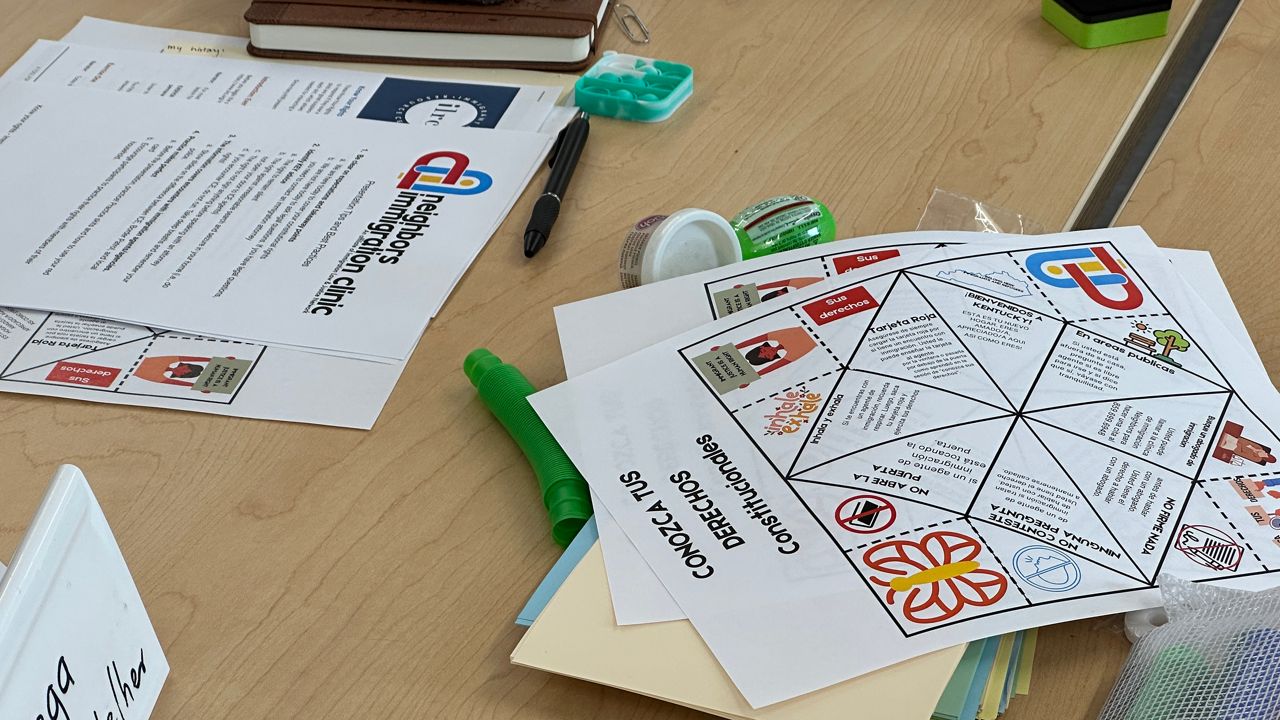
“To me, it’s a very personal cause,” Suárez said. “I’m an immigrant myself, formerly undocumented, and I know how life-changing and empowering legal services can be.”
The training covered the history of immigration in the U.S. Suárez showed participants, some of whom traveled to Lexington from different counties, how to lead a "Know Your Rights" training.
Advocates said they believe these trainings are crucial, especially amid uncertainty.
“What community groups and advocates are doing are simply reiterating to individuals what those rights are because it’s scary if somebody’s coming to you and questioning you and your right to be in the United States,” said State Rep. Nima Kulkarni, D-Louisville, who has been an immigration attorney for 15 years. “You need to be prepared to answer in a manner that is consistent with our laws and our constitution.”
These types of trainings have received criticism from the Trump administration. Border czar Tom Homan recently discussed this on CNN.
“I’ve seen many pamphlets from many of the NGO’s,” Homan said. “‘Here’s how you escape ICE (Immigration and Customs Enforcement) from arresting you; here’s what you need to do.’"
"They call it, 'Know Your Rights.' I call it, ‘how to escape arrest.’ There’s a warrant for your arrest, and they tell you how to hide from ICE. ‘Don’t open your door. Don’t answer questions.’”
There are different kinds of warrants being issued to people who are allegedly in the country illegally, either a judicial or administrative warrant.
“A judicial warrant is different from an administrative warrant in the sense that it needs to be signed off by a judge,” Kulkarni said. “It needs to, therefore, have passed constitutional muster. The judge has to have seen enough probable cause.”
A judicial warrant authorizes law enforcement to make an arrest, a seizure or a search. An administrative warrant does not authorize law enforcement to a search.
“Just having an administrative warrant, which is signed by an ICE official, not a judge, it does not need to specify the name or the place or what they’re looking for,” Kulkarni said. “ICE warrants essentially say, ‘Well, we think there may be somebody here who is unlawfully present,’ so it does not pass legal or constitutional standards.”
Ultimately, both Kulkarni and Suárez emphasized the importance of all U.S. residents knowing their rights.
“There’s this misconception that immigrants don’t have rights, which is not true,” Suárez said. “We all have these constitutional rights.”“There’s this misconception that immigrants don’t have rights, which is not true,” Suárez said. “We all have these constitutional rights.”
The Neighbors Immigration Clinic is hosting another training in February that is already full. More will be held in the coming months.
The nonprofit also encourages organizations that are interested in training their staff to reach out.







